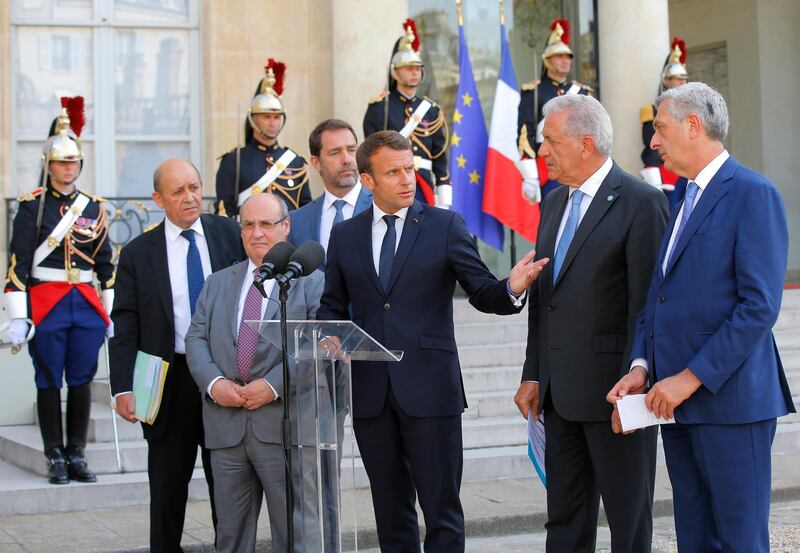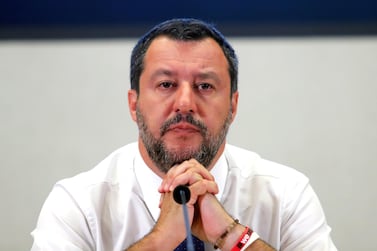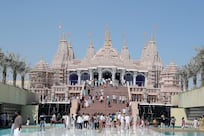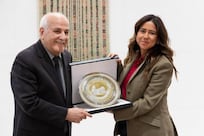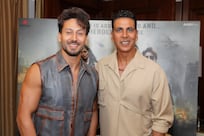European ministers met on Monday in Paris to seek some unity on how to deal with migrants crossing the Mediterranean Sea.
Those making the perilous journey are being blocked from ports in Italy and Malta, dragged back unwillingly to lawless Libya or used as pawns in political standoffs across Europe.
Absent from the closed-door meeting of EU interior and foreign ministers was Italy’s populist Matteo Salvini.
Mr Salvini on Sunday tweeted that France and Germany were trying to determine the bloc’s refugee policy while nations such as Italy were on the front line.
“We intend to make ourselves respected,” the Italian deputy prime minister and interior minister said.
German Foreign Minister Heiko Maas voiced hope that a solution was on the horizon.
“The haggling about emergency rescue in the Mediterranean must finally end,” Mr Maas said after the meeting.
“It is really necessary that we manage to put together a coalition of those who are prepared to help and I think we came a step closer to that today.”
He said talks would continue among interior ministers about ways to make it possible for Italy and Malta to open their harbours.
Thousands of migrants set off each year in smuggler’s boats from Libya, a war-torn nation where migrants are kept in prison-like camps that international authorities have called appalling.
The International Organisation for Migration says that up to June 19, there were 2,252 arrivals in Italy and 1,151 in Malta, while at least 343 other people died attempting the trip. The numbers are far below previous years.
France has stressed the need for European countries to share the arriving migrants, who are often travelling on smugglers’ flimsy boats and rescued by humanitarian groups.
The meeting, called by French President Emmanuel Macron, preceded talks later on Monday between him and the UN chiefs for refugees and migration.
On Sunday, SOS Mediterranee, a French charity that has linked up with Doctors without Borders, said it has returned to sea with a new migrant rescue boat, seven months after the flag was pulled from its original ship, Aquarius.
The Norwegian-flagged Ocean Viking is sailing to the Mediterranean with 31 crew members, the group said.
Mr Salvini told SOS Mediterranee that Italy would not bend its policy of keeping rescue ships at bay.
“If someone is thinking about helping smugglers or breaking laws, be careful because we won’t be standing still,” he tweeted on Monday.
The Aquarius ended operations last autumn after Panama revoked its flag and Italian prosecutors ordered the vessel seized, accusing Doctors without Borders of illegally disposing of tonnes of contaminated and medical waste.
The organisation says the Aquarius assisted 30,000 migrants since 2016.
Monday’s meeting follows another gathering of EU interior ministers on rescuing migrants last week in Helsinki, Finland, which holds the rotating EU presidency.
Mr Salvini hailed the progress in Helsinki, saying other ministers shared Italy’s position of revamping Mediterranean search and rescue rules to prevent immigration abuses.
